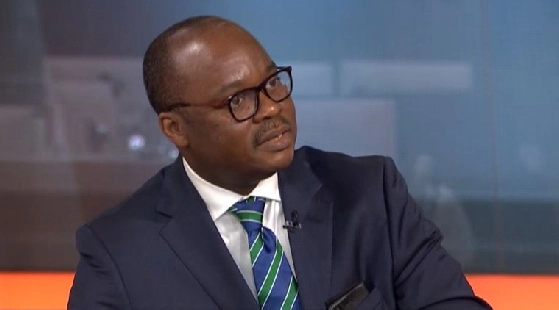Ghana’s creditworthiness downgrade by Moody’s, Fitch and S&P was a “rude shock” – BoG Governor
“We all agreed that it was a sub-optimal policy outcome but the most efficient way to handle the crisis to prevent a disorderly collapse. This meant Bank of Ghana had to stand in as a lender of last resort until the IMF programme was in place.
The Governor of the Bank of Ghana (BoG), has described as “rude shock” the downgrade of Ghana’s creditworthiness by the world’s three most popular credit rating agencies – Moody’s, Fitch Ratings and S&P.
Making the assertion in an interview with Christopher Jeffery on the sidelines of the ECCB 40th anniversary and Central Banking Autumn meetings in Saint Kitts and Nevis, the Governor noted the downgrades immediately led to a loss of market access for the country.
Ghana, given the prevailing economic crisis with inflation shooting up to 54% and the cedi losing around half of its value within a year coupled with impending default on coupon payments, saw the three rating agencies downgrade Ghana’s bonds to junk status and assigning a “restrictive default” rating to the country’s creditworthiness.
“At the end of 2021, inflation was at 12.7%. We had started tightening monetary policy rates in 2021, far ahead of the US Fed – and at a time when a lot of other central banks were still in accommodative mode and not tightening policy. We raised the policy rate by 100 basis points in November of 2021. But in February 2022, we had a rude shock when Moody’s followed by Fitch and S&P downgraded Ghana’s creditworthiness.
“That immediately led to a loss of market access, and it became clear to everybody who knew the Ghanaian economic indicators that this was going to be a difficult period. As a result, the central bank had to provide some accommodation. But, even then, we managed it quite well. For the first three months of the year, the access levels were not significant.
“By the second quarter, however, things began to change. The currency took a severe hit because of significant portfolio outflows and heightened speculation about an IMF programme. Because of the strong stance of not going to the IMF, we began to lose reserves and government spending was far in excess of its revenues, including debt-service payments – we had to continue to service debt even though we had lost access to the market. This is why the central bank lost close to $3 billion reserves in 2022.
“The foreign exchange market became disorderly, and the cedi depreciated sharply. Once you get that type of exchange rate depreciation in a country like Ghana, the pass-through to price level changes is rapid and becomes quite significant. By the middle of the year, it became obvious to the government that the only way out of the crisis was to approach the IMF.
“When the IMF came in, the issue was how to solve the problem in an orderly manner. So, we had to continue to service the debt, continue to refinance the budget, so that salaries could be paid, and government payments continue, knowing very well that there was a solution down the line with an IMF programme. By then, Parliament had not restored the Fiscal Responsibility Act. Together, with the IMF mission that came, we agreed that, given the situation as it was, the central bank had to provide the financing until we could reach an IMF staff-level agreement by the end of the year – and hopefully get IMF board approval, so the IMF programme could kick in.
“We all agreed that it was a sub-optimal policy outcome but the most efficient way to handle the crisis to prevent a disorderly collapse. This meant Bank of Ghana had to stand in as a lender of last resort until the IMF programme was in place. It also meant the country continued to service its debt to both domestic investors and foreign investors throughout this period. The only way we could meet those foreign currency payments was to use the reserves buffers we had accumulated over the years,” the Governor remarked.
Source:norvanreports


